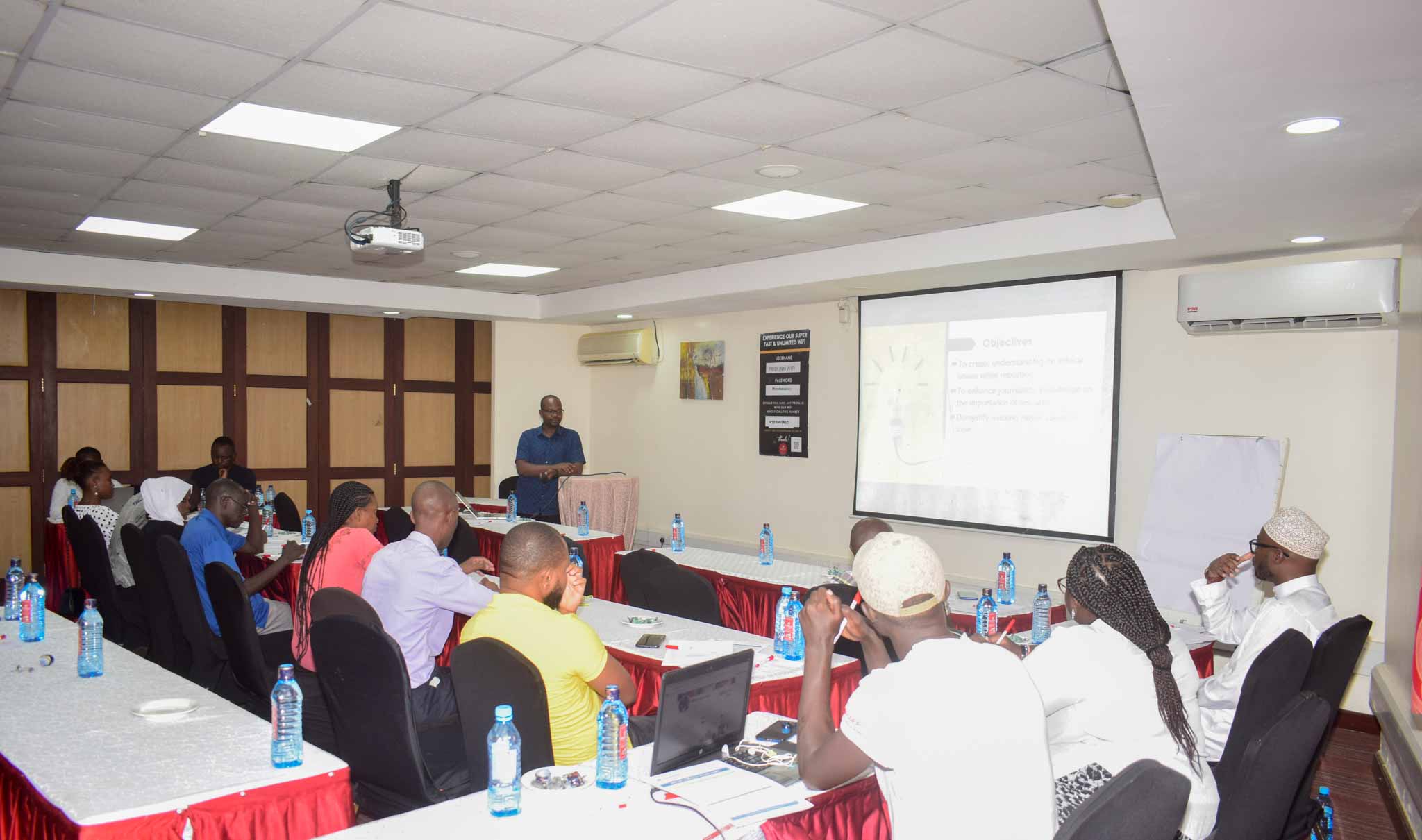
The Media Council of Kenya (MCK) and the National Syndemic Diseases Control Council (NSDCC) have underscored the critical role of the media in telling the HIV/AIDS story.
MCK’s Senior Officer, Research, Planning and Strategy Mr Jacob Nyongesa reminded Mombasa journalists about their role as behaviour change ambassadors.
“The media plays a critical role in reporting health issues by disseminating information to the public, shaping public opinion and influencing policy decisions. However, even as key players in this war against HIV/AIDS we need to rise above the normal duty of just being reporters and champion for behaviour change amongst your audiences”, he said.
Mr Nyongesa called for adherence to journalist ethics when reporting about HIV/AIDS.
“As you cover your stories please respect people who are living with HIV/AIDS, try and familiarise yourself with facts and figures about the disease, to avoid misinforming your audiences”, said Mr Nyongesa.
Dr. Stephen Mutuku of the National Syndemic Diseases Control Council (NSDCC) noted that across Mombasa County, adolescent pregnancies continued to deny young girls their childhood rights, including their right to education and protection, and urged members of the Four Estate to support the Council's efforts in creating awareness through media.
“An estimated 52 per cent of all new infections occurred among adolescents and young adults between 15-29 years. Ignoring these numbers means we are ignoring the risks that comes with it. My plea to you is to help us accelerate campaigns against further spread ”, he said.
The sensitisation forum brought together journalists from local and mainstream media houses who urged MCK and NSDCC to empower them further with such regular trainings as they pledged their support towards the fight to end the triple threat.